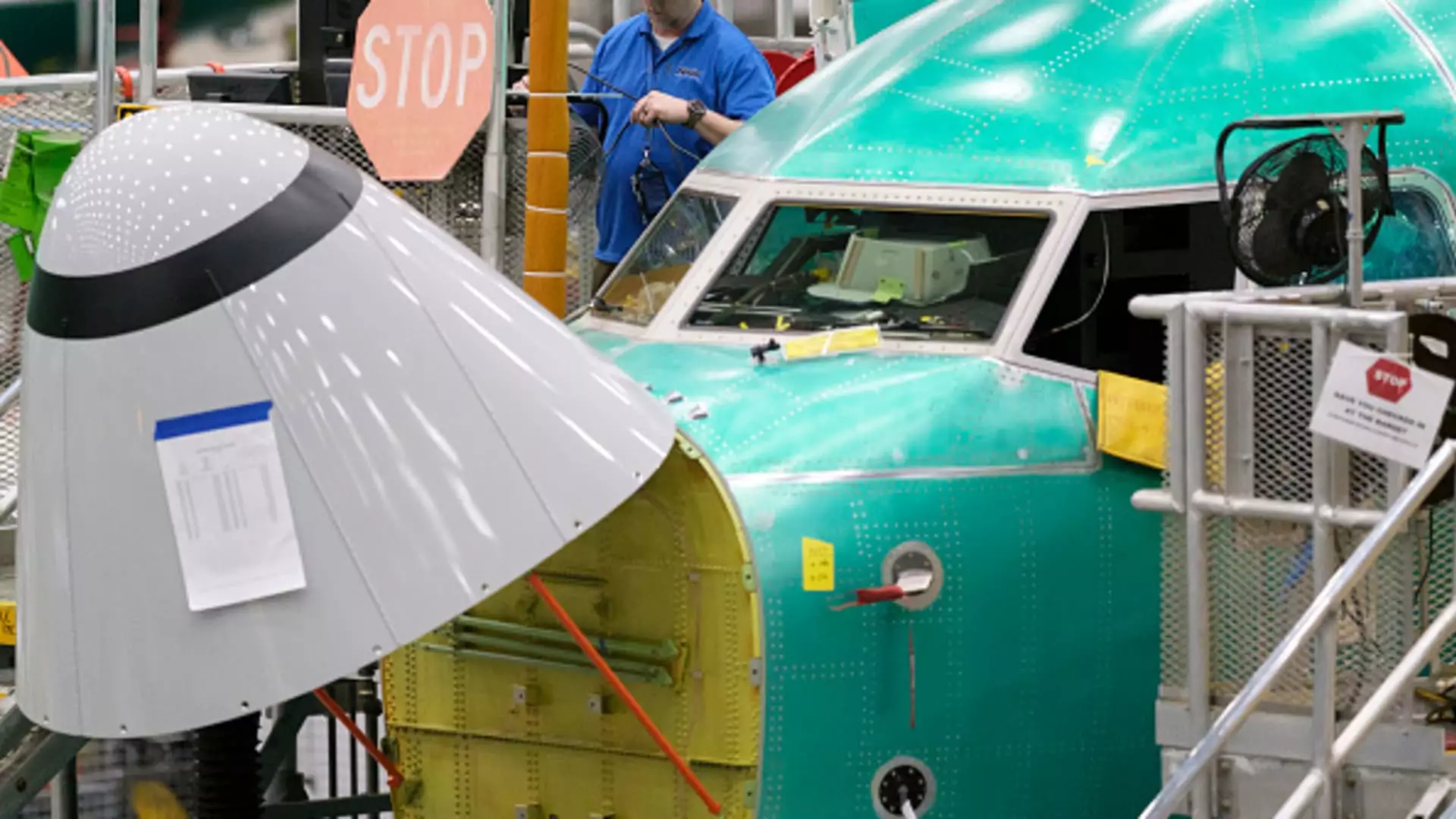In a significant development within the aerospace industry, Boeing has reached a tentative labor agreement with the International Association of Machinists and Aerospace Workers (IAM), representing approximately 33,000 employees. This landmark deal was struck just days before a potential strike that could have severely impacted Boeing’s production capabilities. The agreement signals not only a resolution to immediate labor tensions but also reflects a broader commitment to fostering a stable workforce amidst ongoing challenges.
Financial Incentives and Workforce Security
One of the most compelling aspects of the tentative agreement is the commitment to a 25% wage increase over the next four years. This significant raise addresses the long-standing concerns of workers who have advocated for improved compensation in line with their contributions to the company’s success. Additionally, enhancements to health care costs and retirement benefits underscore Boeing’s recognition of its employees’ needs and the importance of maintaining a robust benefits package. These adjustments are critical, especially as the economy continues to fluctuate, impacting workers’ financial security.
Striking a Balance Between Company and Employee Needs
While the IAM initially sought over a 40% increase, the agreement showcases Boeing’s effort to mitigate potential unrest while also managing its financial realities. New CEO Kelly Ortberg’s leadership is particularly noteworthy here, as he aims to steer Boeing back towards stability after a series of safety and quality controversies that have plagued the company. The acknowledgment of the IAM’s role in preserving Boeing’s reputation is especially telling. The union’s statement highlights a shared commitment to quality and excellence, revealing the interdependency between employee satisfaction and company performance.
Another crucial element of the agreement is Boeing’s commitment to produce its next aircraft in the Pacific Northwest. This decision not only ensures the retention of jobs within a key manufacturing region but also signifies a strategic move to reaffirm Boeing’s legacy in American aerospace manufacturing. This commitment could bolster employee morale and enhance community support, as it promises continued investment in local economic infrastructures.
Despite the optimism surrounding this agreement, its success hinges on approval from the union members, with a vote scheduled for September 12. If ratified, the deal will mark a turning point for Boeing after periods of turbulence marked by operational setbacks and public scrutiny. The need for efficient execution and sincere engagement with workers post-agreement will be essential as the company navigates the complexities of both production and labor dynamics.
This agreement could serve as a foundational step toward fostering a healthier relationship between labor and management at Boeing. By addressing worker concerns comprehensively and demonstrating a commitment to mutual growth, Boeing may be well-positioned to recover from its past challenges and pave the way for a more prosperous future. This proactive approach is pivotal in an industry that is not only competitive but also heavily reliant on the skill and dedication of its workforce.


Leave a Reply